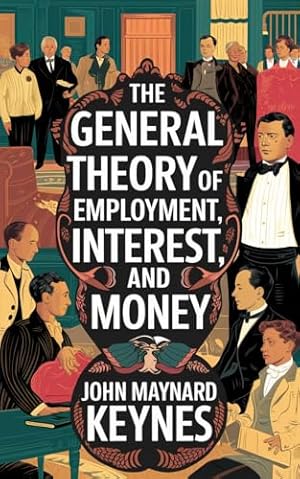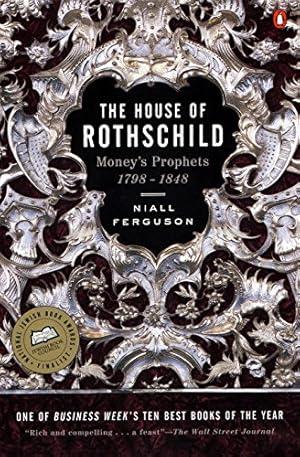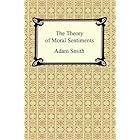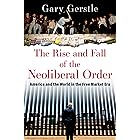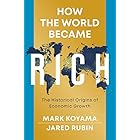| Print List Price: | $23.00 |
| Kindle Price: | $14.65 Save $8.35 (36%) |
| Sold by: | PRH UK Price set by seller. |
Your Memberships & Subscriptions

Download the free Kindle app and start reading Kindle books instantly on your smartphone, tablet, or computer - no Kindle device required.
Read instantly on your browser with Kindle for Web.
Using your mobile phone camera - scan the code below and download the Kindle app.

Follow the author
OK
Adam Smith: An Enlightened Life Kindle Edition
Adam Smith is celebrated all over the world as the author of The Wealth of Nations and the founder of modern economics. A few of his ideas - that of the 'Invisible Hand' of the market and that 'It is not from the benevolence of the butcher, the brewer, or the baker that we expect our dinner, but from their regard to their own interest' - have become icons of the modern world. Yet Smith saw himself primarily as a philosopher rather than an economist, and would never have predicted that the ideas for which he is now best known were his most important. This book, by one of the leading scholars of the Scottish Enlightenment, shows the extent to which The Wealth of Nations and Smith's other great work, The Theory of Moral Sentiments, were part of a larger scheme to establish a grand 'Science of Man', one of the most ambitious projects of the European Enlightenment, which was to encompass law, history and aesthetics as well as economics and ethics.
Nicholas Phillipson reconstructs Smith's intellectual ancestry and formation, of which he gives a radically new and convincing account. He shows what Smith took from, and what he gave to, the rapidly changing and subtly different intellectual and commercial cultures of Glasgow and Edinburgh as they entered the great years of the Scottish Enlightenment. Above all he explains how far Smith's ideas developed in dialogue with those of his closest friend, the other titan of the age, David Hume. This superb biography is now the one book which anyone interested in the founder of economics must read.
- LanguageEnglish
- PublisherPenguin
- Publication dateJuly 15, 2010
- File size36477 KB
Shop this series
See full series-
First 3$104.24
-
First 5$153.89
-
First 10$391.89
-
All 44 available$1,590.38
-
First 3$104.24
-
First 5$153.89
-
First 10$391.89
-
All 44 available$1,590.38
This option includes 3 books.
This option includes 5 books.
This option includes 10 books.
This option includes 44 books.
Customers also bought or read
- An Inquiry into the Nature and Causes of the Wealth of Nations (Crofts Classics)
 Kindle Edition$0.00$0.00
Kindle Edition$0.00$0.00 - Adam Smith’s America: How a Scottish Philosopher Became an Icon of American Capitalism
 Kindle Edition$14.72$14.72
Kindle Edition$14.72$14.72 - Economics in One Lesson: The Shortest and Surest Way to Understand Basic Economics
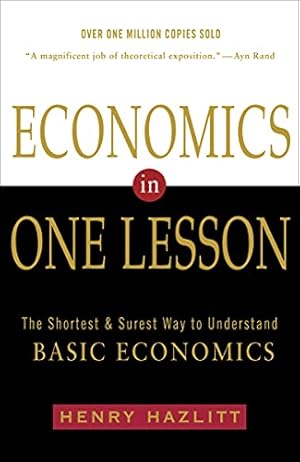 Kindle Edition$9.99$9.99
Kindle Edition$9.99$9.99
Customers who bought this item also bought
Editorial Reviews
Review
Named a Favorite Business Book of 2010 by James Pressley, Bloomberg BusinessWeek
Named a Best Book of 2010 by the Atlantic
Named aCritics' Favorite Book of 2010—The New Yorker
Named a Best Business Book of 2010 by Tyler Cowen, NPR's "Marketplace"
Recipient of the 2011 San Francisco Book Festival Honorable Mention in Biography
"In a feast of both writing and erudition, Nicholas Phillipson has recreated the intellectual and mercantile world of Adam Smith, and shows how it shaped Smith's two masterpieces, the Theory of Moral Sentiments and the Wealth of Nations. He sets Smith's economics firmly in the philosophy of the Scottish Enlightenment – and especially of his great friend David Hume – and argues compellingly that for Smith material improvement was not an end in itself, but a necessary condition for human ennoblement, which was the grand aim of his life's work. A wonderful, thought-provoking book."—Robert Skidelsky, biographer of John Maynard Keynes
"Nicholas Phillipson's lifelong study of Adam Smith has been well worth waiting for. Phillipson treats Smith's The Wealth of Nations as the sequel to his Theory of Moral Sentiments. Political economy and the history of society were handmaids to the moral philosophy which Enlightenment thinkers intended as the replacement of religion. This story has never been better told than in this deeply sympathetic biography of an intellectually ambitious but personally modest man, and it is a superb portrait of the Scotland, Britain and Europe he lived in."— J.G.A. Pocock, Johns Hopkins University
"This stylish biography brings to life Adam Smith's breathtaking ambition to create a Science of Man. Phillipson's elegant prose and erudition make clear the necessary relationship between Smith's moral philosophy and his political economy. The reader is left with a deeper appreciation for Smith's project and for the eighteenth-century Scottish world in which he lived. This book is both a delight to read and agenda-setting. A real achievement!"—Steve Pincus, Yale University
"This is easily the best book on Smith I’ve read: a wonderfully accessible, thoroughly researched, full-bodied drama examining the philosopher and economist. Phillipson’s biography presents Smith as a living personality, not just an imposing intellect, tracking his social, economic, and political moves from his birthplace Kirkcaldy, to Glasgow and Oxford, through his various lectures and professorships, travels around Europe, preparation of The Wealth of Nations, and finally to his work for the government. In doing so, it makes a strong case for the importance and complexity – perhaps primacy – of the Scottish Enlightenment and the men who contributed to it. In clean and clear prose, Phillipson explains what Smith was writing and why he was writing it, whether moral philosophy, jurisprudence, rhetoric or political economy. This beguiling blend of Smith’s intellection and experience should appeal to anyone interested in the making of the modern world."—David Hancock, author of Oceans of Wine: Madeira and the Emergence of American Trade and Taste
About the Author
Product details
- ASIN : B003VTZRR8
- Publisher : Penguin; UK ed. edition (July 15, 2010)
- Publication date : July 15, 2010
- Language : English
- File size : 36477 KB
- Text-to-Speech : Enabled
- Screen Reader : Supported
- Enhanced typesetting : Enabled
- X-Ray : Not Enabled
- Word Wise : Enabled
- Print length : 358 pages
- Best Sellers Rank: #1,351,174 in Kindle Store (See Top 100 in Kindle Store)
- #427 in Biographies of Philosophers (Kindle Store)
- #688 in Economic Theory (Kindle Store)
- #1,120 in Economic History (Kindle Store)
- Customer Reviews:
About the author

Discover more of the author’s books, see similar authors, read book recommendations and more.
Customer reviews
Customer Reviews, including Product Star Ratings help customers to learn more about the product and decide whether it is the right product for them.
To calculate the overall star rating and percentage breakdown by star, we don’t use a simple average. Instead, our system considers things like how recent a review is and if the reviewer bought the item on Amazon. It also analyzed reviews to verify trustworthiness.
Learn more how customers reviews work on AmazonCustomers say
Customers find the book insightful and informative about Adam Smith's life. They describe it as a solidly written biography that provides valuable insights into the humanities. Readers also praise the book as brilliant, wonderful, and well worth reading.
AI-generated from the text of customer reviews
Customers enjoy the book's well-written and thorough biography of Adam Smith. They find it interesting and a valuable resource for anyone interested in the humanities. The author intelligently traces the era in which Smith lived and his views. The book is a treasure for academics, with rich research and scholarship making it a great read for anyone interested in Smith or history of economic thought in general.
"...concentrates on the scholarship of Adam Smith, the author also intelligently traces the era within which Smith lived and his private life that..." Read more
"...This is a very solid and readable biography of a man who has impacted our modern worldview in ways very few people actually understand, and well..." Read more
"Rich and plentiful research and scholarship make this book a treasure for academics. For the semi-intellectual, there is just too much of it...." Read more
"...Their is nothing "enlightened" about this book. I sheds little light on Smith's life and just quotes passages from his works. Don't waste your time." Read more
Customers find the book to be a valuable read. They describe it as brilliant, well-written, and worth reading. The production is described as excellent and enjoyable.
"...worldview in ways very few people actually understand, and well worth reading." Read more
"...company of Hume than Smith. Yale has done justice to this wonderful work. The production is a delight to see and to hold...." Read more
"Beautifully written biography of a key father of the modern world. So well done I bought and read Adam Smith's two great books as well." Read more
"Brilliant and revealing...." Read more
Top reviews from the United States
There was a problem filtering reviews right now. Please try again later.
- Reviewed in the United States on September 19, 2010A solidly written biography of one known by most of us only as the Scottish author of an unread great book. Professor Phillipson's fine effort should lead many to go back and read "The Wealth of Nations."
Adam Smith's thoughts still have direct relevance to today's bucketful of economic problems--and resulting strident political debates--over government's proper role in terms of expenditures, debt, taxation, and business regulations.
While this book concentrates on the scholarship of Adam Smith, the author also intelligently traces the era within which Smith lived and his private life that included such striking people as David Hume, James Boswell, and Voltaire.
In this current age of instant and empty celebrities, Smith still stands, after about 250 years, as a man worth knowing.
- Reviewed in the United States on November 18, 2012Adam Smith is one of the most important figures in modern economic theory. In a very real sense, he provided the basis for the Industrial Revolution through his emphasis on the division of labor as the root of all economic progress. He is, however, more than an economist; his theories on the origin and nature of morality were instrumental in forming his economics, but they reached much farther than economics itself.
While there is little in the way of private writing on which to base anything, because Smith instructed that all his private papers be destroyed at his death, Nicholas Phillipson has written an able biography of the development of Smith's ideas based on his public writings, his unpublished writings, and the notes of several of his students taken down in lecture. The story he tells is fascinating, describing the economic and political circumstances around Smith's life.
The author begins, as with all biographies, in Smith's childhood home and city, Kirkcaldy. Smith lived in the time when Scotland was moving from being a poor country reliant on spinning and meager farms for its economic basis through the industrial revolution, and so his education and thinking were grounded in the experience of those times. He began his life in trying to understand how this massive change came in his world. From here, Smith moved into teaching at a growing college that was closely tied to the town and the town's business interests, so he once again remained on the economic side of academic life -- or rather saw life through an economic and mercantile lens.
The economic history is well known, and well plied in various textbooks. What the author next brings to light is the most interesting: Smith's ties to the Enlightenment. It is the combination of Enlightenment thinking and commercial growth that led to Smith's ultimate quest, to explain the rise of the "moral sentiment," or rather the rise of morality in human society. While many today consider the Enlightenment to be a wide growth of knowledge as science threw off the shackles of religion, the reality is far different.
The Enlightenment, in the end, was removing the Judeo-Christian foundation from science to replace it with another set of religious beliefs, a Deistic/Darwinistic world view that places man at the center of all things. When Smith applied Enlightenment thinking to the economic growth he had seen, he came to the conclusion that morality comes about in human communities because of the need for the rich to protect their goods from the poor -- hence, all morality is essentially based on developing economies.
"Till there be property there can be no government, the very end of which is to secure wealth, and to defend the rich from the poor." -quoted on page 174
Smith was essentially attempting to answer the question, "if there is no God, then why are there morals," without asserting there is no God. Based on this biography, he didn't want to argue against God directly, but rather to simply leave God out in the cold, a small, useless figure that doesn't have any real impact in our actual lives. Man has built it all, from civilization to morals; God need not apply. While the division of labor, Smith's fundamental addition to the body of economic theory, is useful and solid, his theory of morality attempted to find solidity in commerce where it could not be found in the various Enlightenment branches of Darwinistic thought.
This is a very solid and readable biography of a man who has impacted our modern worldview in ways very few people actually understand, and well worth reading.
- Reviewed in the United States on November 9, 2010I have read five book-length biographies of Adam Smith and concluded that the one by Ian Simpson Ross was definitive. I purchased the latest by Nicholas Phillipson because of his reputation rather than an expectation to learn much that is new. Reading it has proven that labeling a work as definitive does not mean it is the final word on the subject. Quite the contrary, Phillipson's work is aptly titled: Adam Smith: An Enlightened Life, as it traces the development of Smith's thought in the milieu of the Scottish Enlightenment and British geopolitics during the second half of the eighteenth century. What was especially enjoyable was to learn more about the great debt Smith owed Hume as an intellect in shaping his works and as a friend. Phillipson expresses puzzlement about why Smith may not have held up his end of the friendship. After reading E. C. Mossner's The Life of David Hume and the Smith biographies, it seems clear Smith was too prudent to do so. If given a change, this reviewer would rather have kept the company of Hume than Smith.
Yale has done justice to this wonderful work. The production is a delight to see and to hold. It provides the best answer to e-books because we buyers will surely enjoying pulling it from our shelves, looking at the illustrations, and reading it again.
- Reviewed in the United States on May 17, 2011Rich and plentiful research and scholarship make this book a treasure for academics. For the semi-intellectual, there is just too much of it. What I wanted was an overview of why Adam Smith is important, not a history of the Scottish Enlightenment. Adam Smith is almost buried in all the facts at the author's fingertips. A more focused treatment would be a vast improvement for most people, but then, I don't think that was the author's goal.
- Reviewed in the United States on September 20, 2016Really thorough and well thought intellectual biography of Adam Smith. By focusing on his intellectual context we get a real sense of what influenced Smith and what he was actually getting at.
Great read for anyone interested in Smith or history of economic thought in general.
- Reviewed in the United States on August 7, 2016Interesting book on the life of the person who advocated free markets and articulate the notions of capitalism
- Reviewed in the United States on November 30, 2010I thought this book would have a million reviews, but since not let me give it another fiver. I was just astonished at how Smith's grand worldview is in fact a projection of his own provincial, very historically constrained culture. The author, while emphasising this fact, is oddly (seemingly, reading between the lines)still inclined to view it as somehow objectively correct as a model of human behavior. Phillipson's mastery of the Scottish Enlightenment is absolutely complete, what a great tour. This is a must read for anyone interested in the humanities.
The owl of wisdom flies at night. After it's over, then we understand. About capitalism, that's the feeling I get from this book.
Top reviews from other countries
 Lawrence HoldenReviewed in the United Kingdom on June 19, 2021
Lawrence HoldenReviewed in the United Kingdom on June 19, 20215.0 out of 5 stars Highly significant biography
Adam Smith's clarity of thought changed thinking about economic and social thinking. This account of his life gives important insight to his fascinating life. Almost more importantly it takes us to the centre of the surge of creative thought that has become known as the Scottish Enlightenment. This is widely unknown or misunderstood but is now as relevant and inspiring as ever. Definitely a book for our misguided times.
-
 Rolf HasseReviewed in Germany on September 30, 2019
Rolf HasseReviewed in Germany on September 30, 20195.0 out of 5 stars rundet das Wissen über Adam Smith gut ab
Inhalt sehr gut. Einsatz in der Lehre.
 kumar ranaReviewed in India on December 10, 2018
kumar ranaReviewed in India on December 10, 20184.0 out of 5 stars Very vsluable
A great book
 Vlad TheladReviewed in Canada on May 1, 2011
Vlad TheladReviewed in Canada on May 1, 20115.0 out of 5 stars An intellectual biography
If you are looking for an exposé of the secret life of Adam Smith (or whatever it is some expect to find in contemporary biographies) this is not a book for you. This is an appropriately described intellectual biography, one that contextualizes in time, place, facts and ideas, the works of Adam Smith. It is an invitation to go beyond the clichés attached to his thought, and the dogmas erroneously attributed to his political economy. By presenting the broader scope and ambition of Smith's ideas, and their place in the eighteen century Scottish Enlightenment, this biography reveals a far greater philosopher than usually credited. This book is not a gripping page-turner, but one definitely worth reading.
 Dr. G. KennedyReviewed in the United Kingdom on November 18, 2013
Dr. G. KennedyReviewed in the United Kingdom on November 18, 20135.0 out of 5 stars A Scholar scores
Magnificent. Best account of Adam Smith's intellectual ideas, strong on moral philosophy if a little weak on his political economy (anyway, that's well covered in other books).












![A Treatise of Human Nature [with Biographical Introduction]](https://m.media-amazon.com/images/I/61AVyF00+WL._UX300undefined_.jpg)



